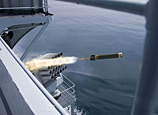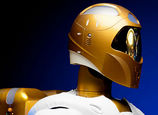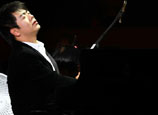
In a way, the best flying I have seen is still the bike-riding scene in Spielberg's E.T. the Extra-Terrestrial.
Peter Chan's Wu Xia - a.k.a. Swordsmen or Dragon - is revolutionary in that it attempts to rationalize all the Herculean tricks with Sherlock Holmes-like precision. To look at it from a cultural perspective, he gave himself the daunting task of fusing Western science with Eastern metaphysics. The computer-generated imagery of the human organs bearing the brunt of a punch is an honorable effort at explaining the unexplainable.
Just as traditional Chinese medicine is for the converted, screen kung fu is built on a premise that it will involve actions not humanly possible. What Chan did was tantamount to Pixar using all 23 million balloons that were technically needed to lift the house in Up. It would be like a tether that binds a flight of fancy.
The real challenge that faces Chinese wuxia is new human movements that are different from the tried-and-true. The martial-arts world needs its own equivalent of Isadora Duncan, who revolutionized the body language of ballet. The current crop of choreographers, most of them Hong Kong raised, have done so many movies that it is understandable they are running out of inspiration.
Fighting for what?
Martial artists fight for a cause. There are arguments that this is where the Chinese spirit shines. In my mind, the principles embodied by these brave souls are strikingly similar to those in other genres, especially the Hollywood western.
Naturally, Chinese heroes come in all stripes and may have faith in any of the religions and sects popular in China, such as Taoism, Buddhism, Confucianism or a blend of these and local variants. Redressing wrongs and seeking justice are frequent motives.
Most wuxia heroes have humble upbringings, which endear them to the masses but alienate them from the literati. They are rebellious by nature, which runs against the official orthodoxy of Confucianism. The literary genre of wuxia was often banned by the powers-that-be, chiefly because it tends to inspire a collective sense of disobedience.
Wuxia heroes place their sympathies with the weak and downtrodden. Their stories often start with a tragedy that remind them of the vulnerability and agonies of being powerless, corporal, mental or official. Act One usually ends with them leaving their homeland in search of more martial skills. Act Two portrays them as wanderers, who encounter mysterious masters and rigorously learn the tricks that will eventually empower them in their fight with the representatives of evil.


















 Beijing police save female hostage
Beijing police save female hostage


![]()
